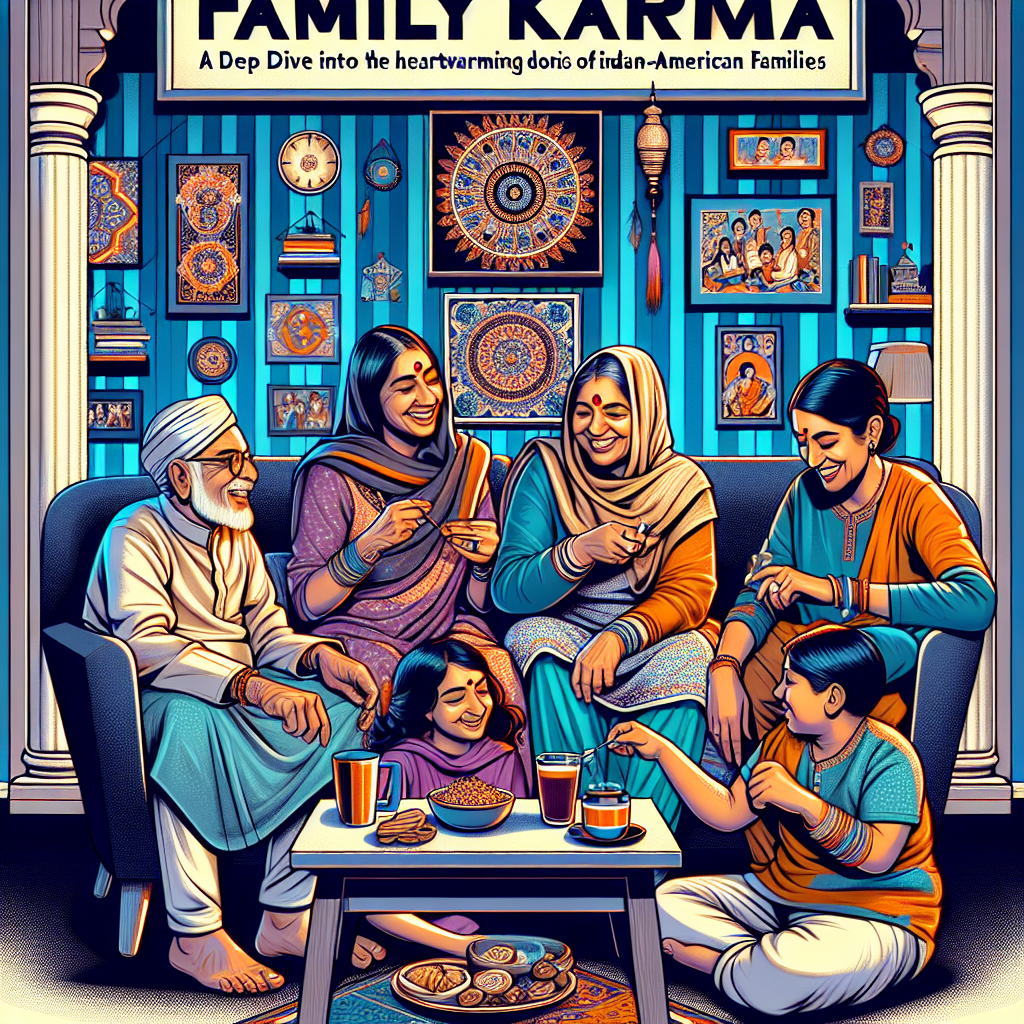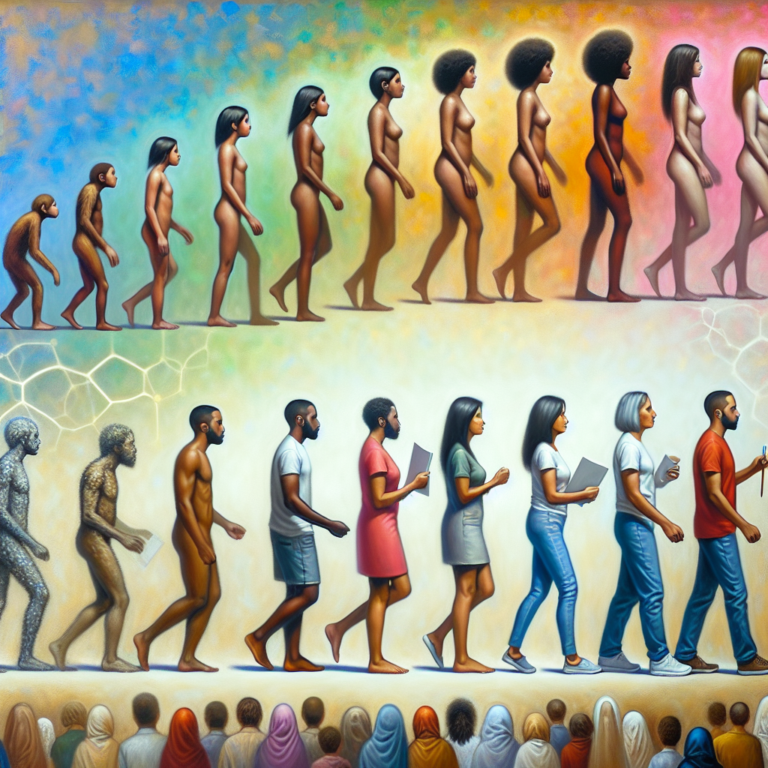Family Karma: A Deep Dive into the Heartwarming Dynamics of Indian-American Families
In the tapestry of reality television, few shows manage to blend humor, culture, and heartfelt complexities like Family Karma. Premiering on Bravo in March 2020, this groundbreaking series delves into the lives of Indian-American families in Miami, offering viewers a unique glimpse into their traditions, challenges, and interpersonal dynamics. Family Karma is not just a reality show; it’s a vibrant portrayal of immigrant experiences, generational conflicts, and the pursuit of the American Dream, all wrapped in a relatable and entertaining package.
The Premise of Family Karma
At its core, Family Karma follows a group of young Indian-American friends—many of whom are the children of immigrants—as they navigate their social lives while remaining deeply connected to their cultural roots. The cast includes individuals from diverse backgrounds, showcasing the spectrum of Indian experiences in America. Viewers are treated to a range of lifestyles, from those who maintain traditional practices to those who embrace contemporary American culture.
The show stands out as a rare depiction of South Asian life in a media landscape often dominated by stereotypes. Through each character’s story arc, Family Karma highlights the rich tapestry that comprises Indian-American identity, focusing on love, friendship, familial bonds, and the inevitable cultural clashes that can arise in such a tightly-knit community.
Key Themes in Family Karma
1. Cultural Identity and Heritage
One of the central themes of Family Karma is the exploration of cultural identity. The characters often find themselves at the crossroads of traditional Indian customs and the realities of modern American society. Viewers witness how this balancing act manifests in various ways—whether it’s through discussions about arranged marriages, cultural expectations, or the celebration of festivals like Diwali and Holi.
The show effectively showcases how different generations perceive and engage with their heritage. The older generation often maintains a more traditional stance, while the younger characters grapple with the pressures of assimilation and the desire to honor their roots. This generational conflict results in heartfelt moments of tension and understanding, making it relatable to any viewer with immigrant roots.
2. Family Dynamics
Family dynamics are intricately woven into the fabric of Family Karma. Viewers meet not only the young protagonists but also their parents and family members, who provide context and depth to their children’s lives. The interactions between generations often embody the age-old struggle of honoring family expectations while also pursuing individual desires.
The series highlights the powerful influence of family, showcasing moments of love, frustration, and unwavering support. The relationships among the cast members also mirror familial bonds, blurring the lines between friendship and family. This tight-knit atmosphere adds a layer of warmth, showcasing how chosen families can be just as impactful as biological ones.
3. Friendship and Community
The friendships depicted in Family Karma are monumental, often serving as a safe haven for navigating the ups and downs of life. The cast has grown up together, creating a deep-rooted understanding of one another that adds an emotional resonance to their interactions. Their loyal camaraderie not only provides comic relief but also serves as a source of solace during testing times.
Moreover, the show underscores the importance of community within Indian-American circles. Celebrations, gatherings, and even conflicts capture how interconnected these families are, showcasing the ways they uplift and support one another.
4. Romantic Relationships
Romance is a significant plot point throughout Family Karma. The cast navigates love, dating, and the desire for companionship while contending with cultural expectations surrounding relationships. Whether it’s the pursuit of love that aligns with traditional values or the desire for independence in romantic choices, the series deftly portrays the multifaceted nature of love in modern Indian-American society.
The romantic dynamics often intertwine with the themes of friendship and family, illustrating the complexities of dating within the community. The pressure to satisfy parental expectations regarding marriage can lead to heartwarming yet challenging scenarios that resonate with many viewers.
The Impact of Family Karma
Family Karma is a monumental addition to the reality television landscape. It offers representation in a genre where South Asian narratives have been largely absent or misrepresented. By humanizing its characters and their experiences, the show invites viewers into the intimate corners of Indian-American life.
Moreover, Family Karma fosters dialogue surrounding cultural identity, showcasing the beauty and challenges of maintaining one’s heritage while living in a diverse society. The authenticity of the characters and their stories resonates with a wide audience, making it a transformative viewing experience for those familiar with immigrant struggles and cultural intersections.
FAQs About Family Karma
1. Where does Family Karma take place?
Family Karma is set in Miami, Florida, allowing viewers to see the vibrant culture and community that characterizes the area.
2. What is the main focus of the show?
The show primarily focuses on the lives of Indian-American families, their cultural heritage, generational conflicts, and the complex relationships among friends and family.
3. How does Family Karma address cultural representation?
Family Karma is significant for its authentic portrayal of Indian-American life, showcasing both traditional customs and modern-day challenges faced by the community.
4. Are there any notable cast members?
Yes, the cast features a diverse group of individuals, including Amrit Kapai, Vishal Parvani, and Anisha Ramakrishna, each with unique stories that contribute to the overall narrative of the show.
5. How does the show handle themes of romance?
Romantic relationships are a central theme in Family Karma, exploring the balance between cultural expectations and personal desires in relationships.
6. Can viewers relate to the show if they are not from an Indian-American background?
Absolutely! The themes of family, friendship, love, and cultural identity are universal, making Family Karma relatable to a wide audience regardless of their background.
Conclusion
Family Karma is more than just a reality show; it’s a heartfelt exploration of the intricate dynamics of Indian-American life. Through its portrayal of family, friendship, love, and cultural identity, it presents a rich narrative that resonates with audiences on multiple levels. As the show continues to evolve, it remains a vital platform for showcasing the beauty of diversity and the interconnectedness of our shared human experience.
Sure! Please go ahead and provide the details or topic you’d like the prompt to focus on, and I’ll assist you with it., #Family #Karma #Deep #Dive #Heartwarming #Dynamics #IndianAmerican #Families, #Family #Karma #Deep #Dive #Heartwarming #Dynamics #IndianAmerican #Families, 1734737004, family-karma-a-deep-dive-into-the-heartwarming-dynamics-of-indian-american-families




